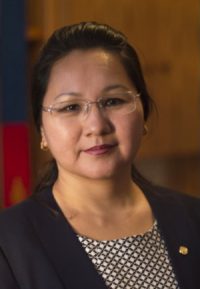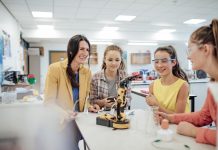A couple of seasoned experts from TU Chemnitz explore digitalisation and individual learning progress, in this informative profile
Digitalisation speeds up all kind of processes and enables new fields of business. To deal with these emerging challenges computer experts are needed. Thereby hardware, software, interface, network, as well as process experts, have to be educated in short time. A huge variety of education and expertise backgrounds as well as individual learning progress can be managed if the teaching focus is withdrawn from teaching books and drawn to the learner’s need. This is called learner-centred learning (LCL).
During the last decade e-learning platforms have been introduced to manage the education process for a variety of students, i.e. learners. Technical problems as providing access, secure data and course organisation are implemented pretty well. Thus, actual learning process includes direct teaching, blended learning and e-learning approaches. Additive instruments introduce collaborated learning approaches and video-based tutoring.
However, in many cases, the learner uses the e-learning platform as he is used by paper-based learning driven by the course teacher. This is due to the simple fact that an e-learning platform by itself does not change the learning process at all.
In our research, we developed new evaluation tools for tracking the stakeholder’s interest as well as teacher’s interests and learner’s success. Several e-learning platforms have been evaluated by the SURE evaluation model. Results show clearly that learning progress and the stakeholder’s and teacher’s interests can be monitored.
Today, evaluation data is collected only once in a longer period of time, e.g. every two study years or less. With our SURE based evaluation, data can be collected as an ongoing process. This allows us to use evaluation data to direct and support the learner ongoing and individual. This introduces LCL into modern learning processes.
Furthermore, it has been found that in many cases e-learning platforms are much stronger than the learner’s progress. Very often, the learner is not using all available platform features. This is due to lack of information or motivation and some usability issues. LCL has to overcome this problem as well.
Our actual research, therefore, develops new methods to adapt the learning process to the learner’s needs. This is based on two ideas:
- Decoupling: The actual fact that many students joint one classroom with one teacher at the same time is eliminated. So, students are provided with access to learning information, exercises and tutoring individually. Within such a decoupled environment, the learner works on his own. Learning progress, repetition, as well as applications, can be managed individually. This eliminates many limits which restrict the learning process unnecessarily. Today, many students have to wait for the next course or exam.
- Adaptation: Adaptation will be reached by combining all data from learners, the learning progress and the learning habits. Based on artificial intelligence methods a tutoring system can be built to guide the learner individually. In particular, we have a proactive tutoring in mind, in order to motivate and activate the learner with respect to his learning progress. The learning platform will automatically adapt the learning material to the individual skills and the personal progress of the learner, for example, additional exercises can be offered or well-structured tests with correct solutions are provided. In most platforms, the learning material is already available, the material is divided into small and feasible portions and exercises are implemented interactively. Adaptation will use this and adds an intelligent, automatically computed combination of learning steps for the learner.
This adaptive LCL approach will be applicable to a huge variety of courses and learners, especially for education in technical areas as digitalisation. Adaptive LCL offers new chances for the learner.
Challenges
- By introducing decoupling and adaptation into the LCL learning process, new challenges come up. Decoupling will lead to new learning processes at universities and schools. Comparable to online academies exam organization will change, e.g. actual group exams will become individual exams. Also, a mixture is possible. In this case, four or six exams are offered per study year instead of one or two. In addition, the business models of universities will have to change also. As long as the number of registered students is the basis for budgets – decoupled learning processes are difficult to handle. Also, the import or export of learning modules to learners of other courses or institutes is restricted by such business models. The number of offered modules and participating learners will drive new models.
- Adaptation is also bearing non-technical challenges. Besides building up databases with knowledge of study programmes and exam options, the individual learning approach must be captured. This will require a new quality of co-operation between the learner and the learning platform. For example, the reason for small non-learning periods can be very important for adequate adaptation. The lack of interest, missing theoretical basic knowledge or just a lack of time will lead to different adaptations. For explorations of this background information, the learner’s cooperation is needed. However, adapted LCL supports typical learning patterns, detected by automatic evaluations of learning processes. Our work on adapted LCL process uses ongoing evaluation information to adapt learning modules, as well as the communication between learner and platform. First case studies show encouraging results overcoming the restrictions pointed out.


By now, it can be stated that decoupling and adaptation can be introduced to LCL. It leads to new learning strategies, which are suitable for the individual learner. Thus, the different individual needs can be covered by automatic adaptation based on an ongoing evaluation.
In addition, automatically provided individual coaching supports all kinds of learners with respect to their knowledge, language skills and social background. Application of adapted LCL methods will lead to huge innovation in terms of reduction of study time and study.
Please note: this is a commercial profile
Prof. Dr W. Hardt
Professor Technische Informatik
Dr. habil. Uranchimeg Tudevdagva
Assistant Prof.
TU Chemnitz
Tel: +49 371 531 25550











